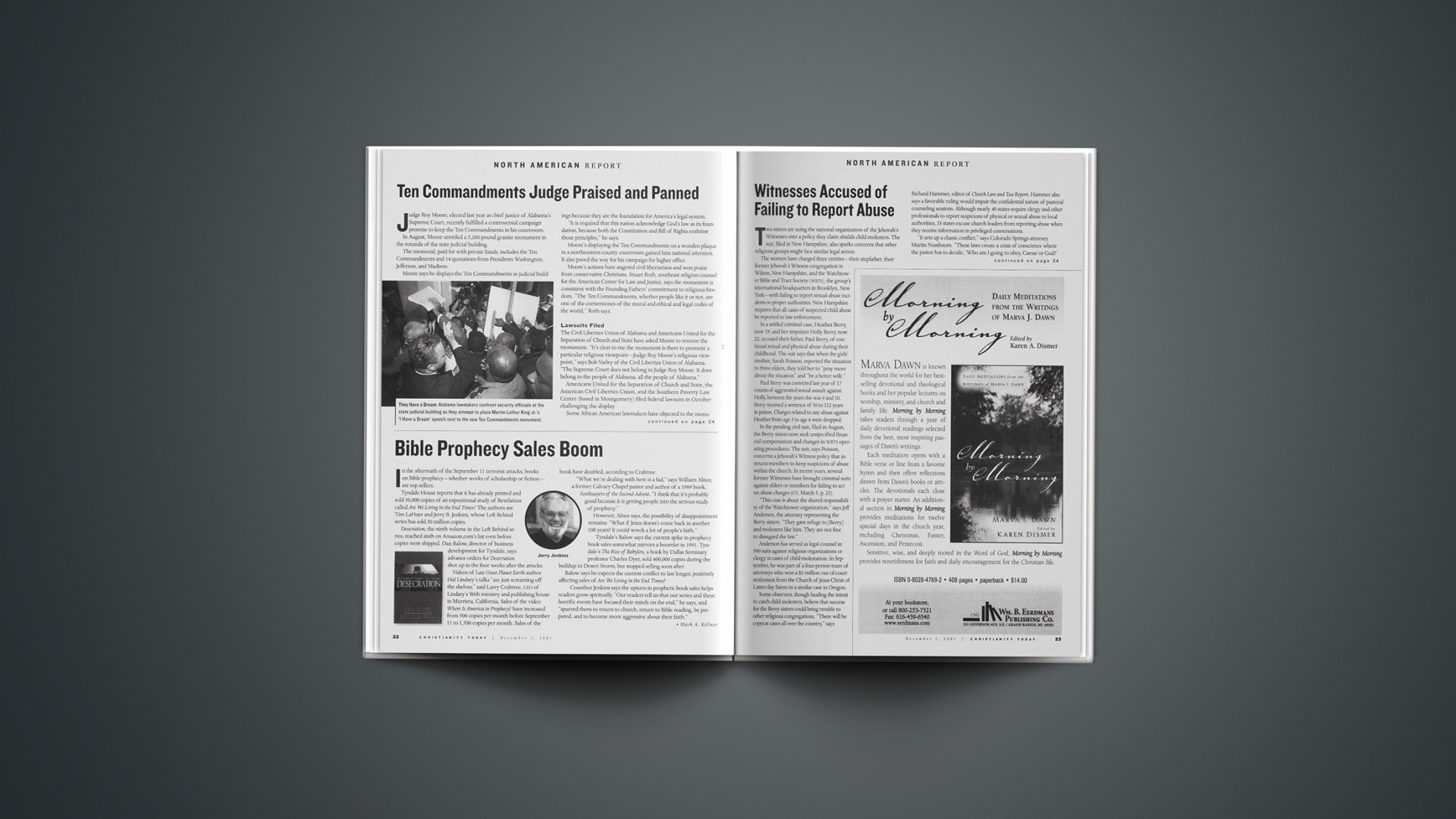In the aftermath of the September 11 terrorist attacks, books on Bible prophecy—whether works of scholarship or fiction—are top sellers.
Tyndale House reports that it has already printed and sold 50,000 copies of an expositional study of Revelation called Are We Living in the End Times? The authors are Tim LaHaye and Jerry B. Jenkins, whose Left Behind series has sold 30 million copies.
Desecration, the ninth volume in the Left Behind series, reached sixth on Amazon.com's list even before copies were shipped. Dan Balow, director of business development for Tyndale, says advance orders for Desecration shot up in the four weeks after the attacks.
Videos of Late Great Planet Earth author Hal Lindsey's talks "are just screaming off the shelves," said Larry Crabtree, CEO of Lindsey's Web ministry and publishing house in Murrieta, California. Sales of the video Where Is America in Prophecy? have increased from 500 copies per month before September 11 to 1,500 copies per month. Sales of the book have doubled, according to Crabtree.
"What we're dealing with here is a fad," says William Alnor, a former Calvary Chapel pastor and author of a 1989 book, Soothsayers of the Second Advent. "I think that it's probably good because it is getting people into the serious study of prophecy."
However, Alnor says, the possibility of disappointment remains: "What if Jesus doesn't come back in another 100 years? It could wreck a lot of people's faith."
Tyndale's Balow says the current spike in prophecy book sales somewhat mirrors a boomlet in 1991. Tyndale's The Rise of Babylon, a book by Dallas Seminary professor Charles Dyer, sold 400,000 copies during the buildup to Desert Storm, but stopped selling soon after.
Balow says he expects the current conflict to last longer, positively affecting sales of Are We Living in the End Times?
Coauthor Jenkins says the upturn in prophetic book sales helps readers grow spiritually. "Our readers tell us that our series and these horrific events have focused their minds on the end," he says, and "spurred them to return to church, return to Bible reading, be prepared, and to become more aggressive about their faith."
Copyright © 2001 Christianity Today. Click for reprint information.
Related Elsewhere
While the sales of prophetic books have grown, dispensationalist voices have been relatively quiet since September 11.
In 1999, David S. Dockery, author of Our Christian Hope: Biblical Answers to Questions About the Future answered the question, "Is Revelation Prophecy or History?"
Are We Living in the End Times? and Desecration are available at Christianbook.com.
Related mainstream articles include:
Thomas Nelson rushes new prophecy book on attack | John Hagee's The Battle for Jerusalem gets new chapter, retitled "Attack on America: New York, Jerusalem and The Role of Terrorism In The Last Days" (The Pittsburgh Post-Gazette)
End-times prophecies continue | Fresh apocalyptic scenarios are popping up with a new intensity (Associated Press)
This is boom time for End Times believers | Who among us has not had such fantasies and fears in recent months? (Elizabeth Nickson, National Post)
Terrorism brings rise in sales of the Bible | Amazon.co.uk, the internet booksellers, said it had not sold more Bibles but had more demands for the Koran and books on the prophecies of Nostradamus (The Daily Telegraph)










